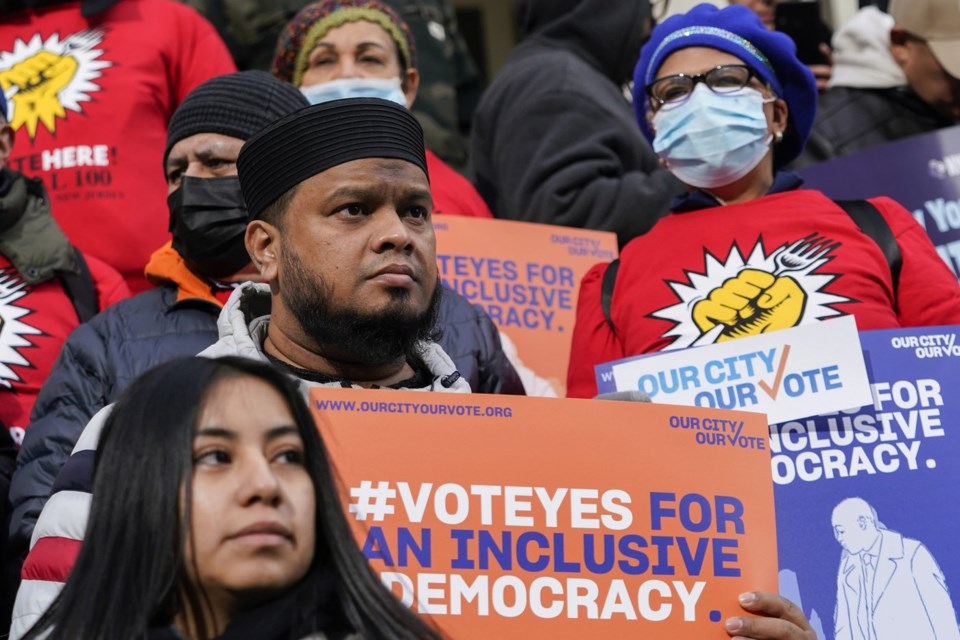ALBANY, N,Y. (AP) — New York’s top court was asked Tuesday to reverse a ruling against a law that would allow noncitizens to vote in New York City municipal elections by lawyers who argued city officials acted within their legal powers.
New York City became the first major U.S. city to grant widespread municipal voting rights to noncitizens in January 2022 — though the law approved by the Democrat-led city council was never implemented due to a legal challenge from Republicans. The city law did not grant noncitizens the right to vote in presidential, congressional or state elections.
A trial judge sided with Republican challengers to noncitizen voting in June 2022. And a mid-level state appeals court ruled last year that the law violated the state constitution and a legal requirement to hold a public referendum on the proposal because it changed an election method.
The city council appealed to the state Court of Appeals. An attorney for the council told the judges that the city government did not violate the state constitution.
“It engaged in a core act of self-governance and the exercise of its home rule powers. This court should hold that the constitution permits the city to make that choice,” attorney Claude Platton said.
The city law gave municipal voting rights to noncitizens who have been lawful permanent residents of the city for at least 30 days, along with those authorized to work in the U.S. Supporters contend the law gives a say to more than 800,000 authorized immigrants. Mayor Eric Adams let the measure become law without his signature.
Republican officials accused Democrats of passing to law for partisan gain and promptly challenged the law in court. Their attorney Michael Hawrylchak argued that the state constitution expressly defines voting as a right granted only to citizens.
Arguments Tuesday focused largely on how to interpret specific constitutional language and how to define words like “citizen.” Though Judge Jenny Rivera noted the law could have an big impact if implemented, saying it would “expand the franchise to a very large number of individuals.”
A decision is expected in the coming months.
More than a dozen communities across the United States have allowed noncitizens to cast ballots in local elections, including 11 towns in Maryland and two in Vermont.
Michael Hill, The Associated Press



